Pure Lipoic Acid
INCI: Thioctic Acid
CAS: 1077-28-7
EC: 214-071-2
FM: C8H1402S2
PM: 206.33 g/mol
DESCRIPTION: Slightly yellow crystalline powder
SOLUBILITY: Soluble in water.
WEALTH: 99.0-101.0%
pH value: 4 - 5
Origin/Nature: Vegetable extracts / synthetic
Free of 2-MCPD and 3-MCPD.
Free of Dioxins, Furans and PCBs
Complies with Regulation 1881/2006 and Regulation No (E() 629/2008.
Complies with Regulation (E() No. 396/2005
Meets maximum levels of DDAC and BAC (0.01 mg/kg)
Our lipoic acid acts as an antioxidant and anti-wrinkle agent. It is derived from green vegetables like spinach, Swiss chard, kale, and broccoli. Helps reduce blemishes, fine lines, and wrinkles. Lipoic acid (ALA) or vitamin N is used in antiaging creams, eye creams, and sunscreens.
STORAGE: In a well ventilated place. Keep containers closed and away from strong Oxidants and Acids. Protect from moisture and sunlight, it is extremely vulnerable to degradation by sunlight. Higher concentrations (5% or more) are capable of causing a burning or stinging sensation on the skin.
What is lipoic acid and what is it used for?
Lipoic acid, also known as α-lipoic acid, alpha lipoic acid (ALA), thioctic acid, 6,8-thioctic acid, 6,8-dithioctane acid, and 1,2-dithiol-3-valeric acid, is a compound natural organic found in certain foods and in the human body. It is a powerful antioxidant that helps protect cells from damage caused by free radicals, which can be detrimental to health.
Lipoic acid also helps convert food into energy, making it important for maintaining proper cell function throughout the body. Additionally, it has been shown to have anti-inflammatory properties and help improve insulin sensitivity.
What types of lipoic acids are there and which one is used in cosmetics?
There are two forms of lipoic acid: R-lipoic acid and S-lipoic acid. R-lipoic acid is the natural form of lipoic acid and is found in food and in the human body, while S-lipoic acid is a synthetic form. Both forms have antioxidant and anti-inflammatory properties, but R-lipoic acid is the most used form in cosmetics due to its greater stability and biological activity.
R-lipoic acid is used in cosmetics due to its antioxidant properties and its ability to improve the appearance of skin and hair. Additionally, R-lipoic acid has been shown to be able to reduce free radical levels in the skin and improve collagen synthesis, which may help prevent premature skin aging. It can also help reduce inflammation in the skin and improve its texture and tone.
In summary, R-lipoic acid is the most widely used form in cosmetics due to its antioxidant and anti-inflammatory properties, as well as its ability to improve the appearance of skin and hair.
What Causes Lipoic Acid Deficiency? How does it damage the skin and hair?
Lipoic acid deficiency in the human body can be caused by several factors, including a diet poor in essential nutrients, chronic disease, aging, and excessive alcohol consumption.
When there is a deficiency of lipoic acid in the body, this can lead to a decrease in the production of natural antioxidants, which increases cell damage caused by free radicals. This can lead to skin and hair damage, which can manifest as:
- Wrinkles and fine lines: Cell damage caused by free radicals can cause a decrease in the production of collagen and elastin in the skin, which can lead to the appearance of wrinkles and fine lines.
- Loss of elasticity: The decrease in the production of collagen and elastin in the skin can also lead to a loss of elasticity in the skin, which can make the skin look saggy and loose.
- Dull, dull skin: Cell damage can also affect the overall appearance of the skin, which can make it look dull and dull.
- Weak and brittle hair: Lipoic acid deficiency can also affect the health of the hair, which can cause it to become weak and brittle.
It is important to note that lipoic acid deficiency can be prevented or treated through a balanced diet and proper supplementation. Additionally, using skin and hair care products that contain lipoic acid can help improve skin and hair health by protecting against cell damage and stimulating collagen and elastin production.
Who can benefit from using lipoic acid?
Anyone can benefit from using lipoic acid products in their skin and hair care routine. However, some people may see more significant results. For example, people with oily or acne-prone skin may benefit from the anti-inflammatory properties of lipoic acid. People with mature skin may see improvements in skin texture and tone. Additionally, lipoic acid can be beneficial for hair, as it can help strengthen and protect hair follicles.
Below is a list of skin and hair types that may benefit from the use of lipoic acid and how it may affect each:
- Dry Skin: May help hydrate dry skin by increasing collagen synthesis and reducing inflammation. In addition, its antioxidant properties can help prevent cell damage and the appearance of signs of premature aging.
- Oily skin: can regulate sebum production in oily skin by reducing inflammation and balancing the skin's pH. In addition, its antioxidant properties can help prevent cell damage and the appearance of signs of aging.
- Sensitive skin: can reduce inflammation and irritation. In addition, it can help strengthen the skin barrier and improve its texture and tone.
- Mature Skin: Helps increase collagen synthesis and reduce the appearance of fine lines and wrinkles. In addition, its antioxidant properties can help prevent cell damage and the appearance of signs of premature aging.
- Damaged hair: strengthens damaged hair by improving circulation in the scalp and increasing the synthesis of collagen in the hair. It can also help reduce inflammation and improve hair shine and texture.
- Oily hair: reduces sebum production on the scalp and balances the pH of the hair. It can also help reduce inflammation and improve hair texture and volume.
How is lipoic acid used on the skin?
Lipoic acid can be used in a variety of skin and hair care products, including creams, serums, and shampoos. In general, a concentration of 0.5% to 4% is recommended in skin care products and 0.5% to 1% in shampoos and conditioners.
It's important to note that lipoic acid is an acid, so it can be an irritant to some people. It is advisable to do a patch test before using any product containing lipoic acid on the skin or hair.
What lipoic acid skin care products can I make?
There are many natural cosmetic formulations that you can make at home using lipoic acid. Here are some ideas:
- Moisturizing creams: to improve skin health. The recommended dose for the preparation of moisturizing creams is 0.5% to 1.5% per 100 grams of product.
- Facial serum: to prevent the appearance of signs of premature aging. The recommended dose for the preparation of facial serum is 0.5% to 2% per 100 grams of product.
- Shampoos and hair masks: to improve hair health. The recommended dose for making shampoos is 0.5% to 1% per 100 grams of product.
FAQ about lipoic acid
What contraindications does lipoic acid have for the skin?
Lipoic acid can be irritating to some people and may cause an allergic reaction in sensitive people. For this reason, it is recommended to do a patch test before using any product containing lipoic acid on the skin or hair. Also, its use on open wounds or irritated skin should be avoided.
Does alpha lipoic acid increase collagen?
Indeed, alpha-lipoic acid has been shown to have positive effects on the synthesis of collagen in the skin. Collagen is an important protein found in the skin and is responsible for its firmness and elasticity. With aging, collagen synthesis decreases, which can lead to the appearance of wrinkles and fine lines.
Lipoic acid acts as an antioxidant and anti-inflammatory in the skin, which can stimulate collagen synthesis and prevent its breakdown. Studies have shown that lipoic acid can increase the production of collagen in the skin, which can help improve its firmness and elasticity.
In addition, lipoic acid can also help prevent the appearance of signs of premature aging by protecting the skin against cell damage caused by free radicals.
It is important to note that the effectiveness of lipoic acid in increasing collagen synthesis may depend on several factors, such as the concentration of lipoic acid in the product and the frequency of use. Additionally, lipoic acid is most effective when combined with other ingredients that also stimulate collagen synthesis, such as vitamin C and peptides.
What can't be mixed with alpha-lipoic acid?
It is important to note that lipoic acid may be incompatible with certain ingredients, meaning they should not be mixed together to avoid possible adverse skin reactions. Ingredients that should not be mixed with lipoic acid include:
- Vitamin C: when mixed with lipoic acid, vitamin C can reduce its effectiveness as an antioxidant and cause skin irritation.
- Niacinamide: Niacinamide can reduce the effectiveness of lipoic acid as an antioxidant and decrease its anti-inflammatory properties.
- Retinol: Retinol and lipoic acid can have similar effects on the skin, so their combination can cause skin irritation and sensitivity.
- Salicylic Acid: Salicylic acid can increase the absorption of lipoic acid into the skin, which can cause skin irritation and sensitivity.
- Glycolic Acid: Glycolic Acid and Lipoic Acid can be too irritating to the skin when used together, which can cause redness and skin sensitivity.
Can alpha-lipoic acid be absorbed through the skin?
It is true that lipoic acid can be absorbed through the skin, which makes it effective for skin and hair care. The absorption of lipoic acid through the skin is due to its molecular structure, which allows it to penetrate the superficial layers of the skin and reach the dermal cells.
Once lipoic acid is absorbed into the skin, it can exert its antioxidant and anti-inflammatory effects on skin cells and improve the appearance of skin and hair. Furthermore, lipoic acid has been shown to be able to increase the synthesis of collagen in the skin and hair, which can help improve its firmness and elasticity.
It is important to note that the amount of lipoic acid that is absorbed through the skin can depend on several factors, such as the concentration of lipoic acid in the product, the formulation of the product, and the condition of the skin. Therefore, it is important to follow product usage recommendations and do a patch test before using any product containing lipoic acid on the skin or hair.
Is alpha lipoic acid used for skin whitening?
No, lipoic acid is not used for skin whitening. Although it has been shown to have beneficial effects on the appearance of the skin, it is not designed to lighten the skin.
It is important to note that the practice of skin whitening is not recommended by experts in dermatology and natural cosmetics, as it can have negative effects on skin health. Skin whitening products often contain harsh ingredients that can cause skin irritation, inflammation, and sensitivity.














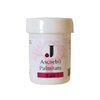
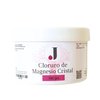
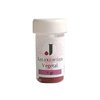

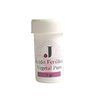
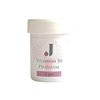
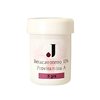

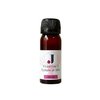
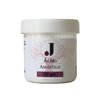
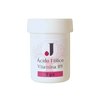
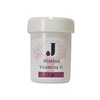
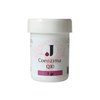
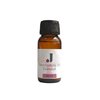
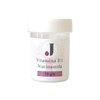
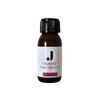
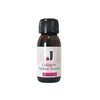
 tienda@ladespensadeljabon.com
tienda@ladespensadeljabon.com  Location
Location (+34 ) 944 657 841
(+34 ) 944 657 841




 (+34 ) 608 651 314
(+34 ) 608 651 314